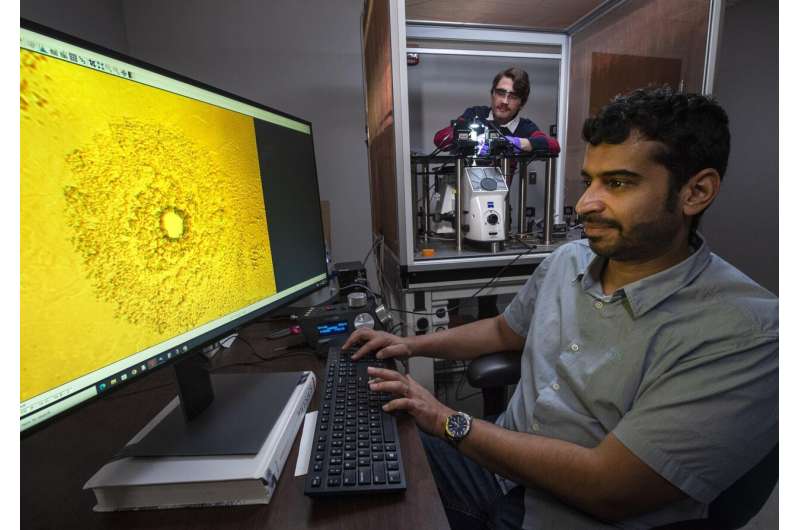This article has been reviewed according to Science X's editorial process and policies. Editors have highlighted the following attributes while ensuring the content's credibility:
fact-checked
peer-reviewed publication
trusted source
proofread
Research shows effectiveness of new technique to detect ovarian cancer marker peptides

A new study led by researchers at Virginia Commonwealth University found that a novel technique is effective at detecting specific biomarkers that are present in the urine of ovarian cancer patients. The research could one day play a role in helping doctors more accurately diagnose ovarian cancer.
The study's lead author, Joseph Reiner, Ph.D., professor and chair of the Department of Physics in the College of Humanities and Sciences, said ovarian cancer is difficult to diagnose. Mass spectrometry has previously identified thousands of peptides that are present in the urine of ovarian cancer patients. These peptides could serve as biomarkers for ovarian cancer, but mass spectrometry is not readily available for clinical applications and alternative techniques are needed to detect these peptides.
In their paper, "Cluster-Enhanced Nanopore Sensing of Ovarian Cancer Marker Peptides in Urine," the researchers describe using gold nanoparticles in conjunction with nanopore sensing to detect and characterize 13 of the previously identified peptides. They include peptides from LRG-1, an increasingly sought-after protein biomarker that is commonly present in the urine of ovarian cancer patients. The paper was published in ACS Sensors.
"Beating cancer relies on early and accurate diagnosis. In fact, clinical data shows a 50–75% improvement in five-year survival when cancers are detected at their earliest stage," Reiner said. "This is true across numerous cancer types. We are interested in ovarian cancer because it is particularly difficult to detect and requires the development of new sensors that could be made widely available for clinical applications."
The paper describes a technique that could be applied toward detection of numerous peptides simultaneously. The hope is that this "broad spectrum" approach, in conjunction with other relevant information (such as CA-125 blood test, transvaginal ultrasound and family history), could someday provide a more accurate picture of whether or not ovarian cancer is present at an early stage.
"We envision that our approach could expand beyond ovarian cancer to other types of cancer," Reiner added.
More information: Thomas W. Rockett et al, Cluster-Enhanced Nanopore Sensing of Ovarian Cancer Marker Peptides in Urine, ACS Sensors (2024). DOI: 10.1021/acssensors.3c02207



















